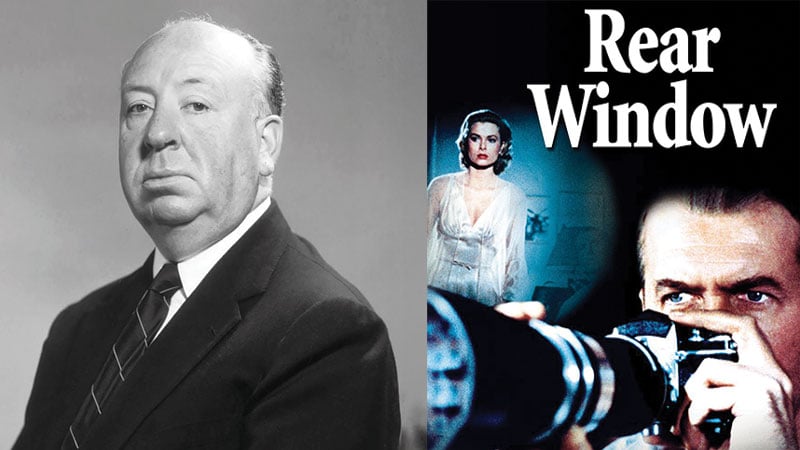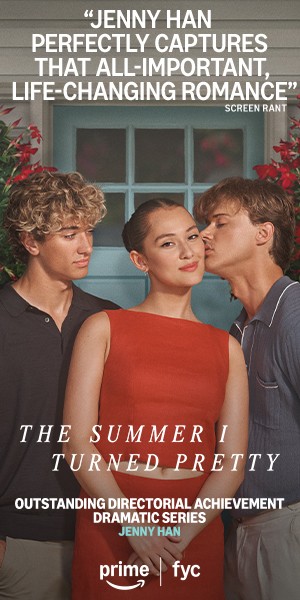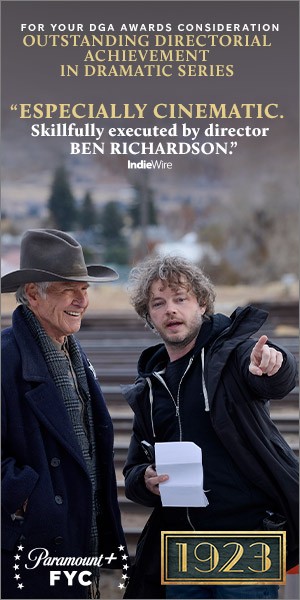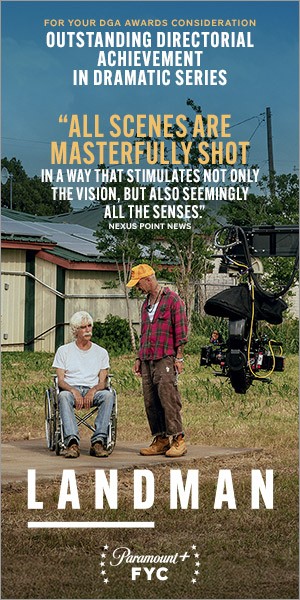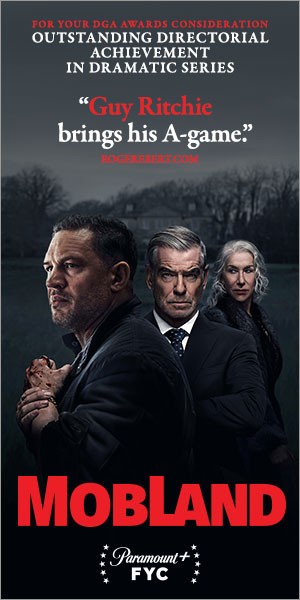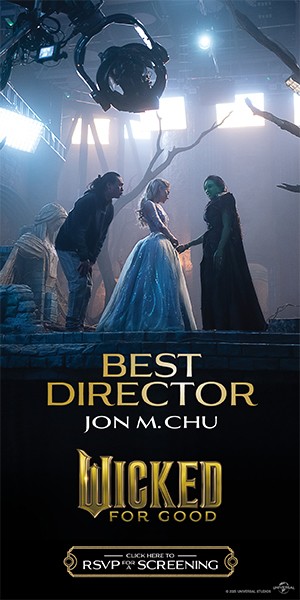On May 12, the Special Projects Committee hosted the latest installment of their Classic Film Series with a screening of Sir Alfred Hitchcock’s DGA Award-nominated 1954 feature, Rear Window. The series screens iconic films, often followed by a discussion about the Director's contribution to the world of cinema.
The evening opened with welcomes from Special Projects Committee Co-Chair Michael Goi and Classic Film Series Subcommittee Chair Arthur Allan Seidelman.
Describing the story as “a portrait of urban isolation,” Seidelman said, “What is remarkable is how Hitchcock, without ever leaving Jeff’s cramped apartment, manages to explore the full expense of human emotion, forcing Jeff and us to confront not only what is happening across the backyard and the courtyard, but also what’s happening in our own lives.”
Following the screening in the Guild’s Los Angeles Theater, Seidelman moderated a discussion where Director Roxanne Benjamin (There’s Something Wrong with the Children), who was influenced by Hitchcock’s work, and actress Diane Baker, who worked with the iconic Director on his feature Marnie, discussed Hitchcock’s lasting legacy on cinema.
Discussing the concept of fear and how to communicate it on screen, Benjamin shared her approach to directing a horror. “Fear is such a personal thing. There’s no kind of like real universal direction for fear. It’s more of getting into someone’s head and really having them picture like their own personal demons. There’s Something Wrong with the Children was built around raising tension between the two couples. ‘What is their domestic drama?’ ‘What is it that they’re hiding?’ ‘What is it that they are most afraid of the other people around them finding out?’ In Rear Window, there’s so much about what we’re seeing and what you’re seeing into other people’s lives and what you want people to know and what you don’t. I feel like when we think of horror films, we think of either the jump scare or the reveal, which is more like Hitchcock. It's about the lead up to that and like drawing out that suspense. So, to me fear lives in the unknown.”
Baker recalled her experience working with Hitchcock and how he brought his characters to life. “He cast the people so well. They brought so much life to the story in such individual ways, from Thelma Ritter to Grace Kelly, they played their characters with unbelievable depth. I learned so much from him. You'll notice in this movie the meaning of what a moment is supposed to have. There’s action going on like with the scratching of Jeff’s toe, to make it seem that nothing is going to happen. And then out of it comes something. He taught me opposites.”
About Alfred Hitchcock
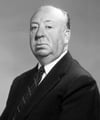 Sir Alfred Joseph Hitchcock KBE (1899-1980) is widely regarded as one of the most influential figures in the history of cinema. After making his directorial debut with the British-German silent film, The Pleasure Garden (1925), his film The Lodger: A Story of the London Fog (1927) helped to shape the thriller genre and his film Blackmail (1929) was the first British "talkie". Known as the "Master of Suspense", his career would span six decades, with over 50 feature films including: Rebecca (1940), Foreign Correspondent (1940), Suspicion (1941), Shadow of a Doubt (1943), Lifeboat (1944), Spellbound (1945), Notorious (1946), Rope (1948), To Catch a Thief (1955), Psycho (1960) and The Birds (1963). He was an eight-time nominee for the DGA Award for Outstanding Directorial Achievement in Motion Pictures for: Strangers on a Train (1951), Dial M for Murder (1954), Rear Window (1954), The Man Who Knew Too Much (1956), The Trouble with Harry (1955), Vertigo (1958), North by Northwest (1959) and Psycho (1960). In 1968, the DGA honored Hitchcock with the Lifetime Achievement Award.
Sir Alfred Joseph Hitchcock KBE (1899-1980) is widely regarded as one of the most influential figures in the history of cinema. After making his directorial debut with the British-German silent film, The Pleasure Garden (1925), his film The Lodger: A Story of the London Fog (1927) helped to shape the thriller genre and his film Blackmail (1929) was the first British "talkie". Known as the "Master of Suspense", his career would span six decades, with over 50 feature films including: Rebecca (1940), Foreign Correspondent (1940), Suspicion (1941), Shadow of a Doubt (1943), Lifeboat (1944), Spellbound (1945), Notorious (1946), Rope (1948), To Catch a Thief (1955), Psycho (1960) and The Birds (1963). He was an eight-time nominee for the DGA Award for Outstanding Directorial Achievement in Motion Pictures for: Strangers on a Train (1951), Dial M for Murder (1954), Rear Window (1954), The Man Who Knew Too Much (1956), The Trouble with Harry (1955), Vertigo (1958), North by Northwest (1959) and Psycho (1960). In 1968, the DGA honored Hitchcock with the Lifetime Achievement Award.
About Rear Window
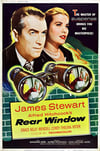 A photographer in a wheelchair spies on his neighbors from his Greenwich Village courtyard apartment window, and becomes convinced one of them has committed murder, despite the skepticism of his fashion-model girlfriend.
A photographer in a wheelchair spies on his neighbors from his Greenwich Village courtyard apartment window, and becomes convinced one of them has committed murder, despite the skepticism of his fashion-model girlfriend.
Considered by many filmgoers, critics, and scholars to be one of the greatest films ever made, Rear Window received four Academy Award nominations as well as a DGA Award nomination for Hitchcock. In 1997, it was added to the Library of Congress’ National Film Registry as being “culturally, historically, or aesthetically significant.”
